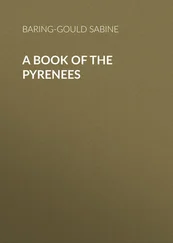Sabine Baring-Gould - Legends of the Patriarchs and Prophets
Здесь есть возможность читать онлайн «Sabine Baring-Gould - Legends of the Patriarchs and Prophets» — ознакомительный отрывок электронной книги совершенно бесплатно, а после прочтения отрывка купить полную версию. В некоторых случаях можно слушать аудио, скачать через торрент в формате fb2 и присутствует краткое содержание. Жанр: foreign_antique, foreign_prose, на английском языке. Описание произведения, (предисловие) а так же отзывы посетителей доступны на портале библиотеки ЛибКат.
- Название:Legends of the Patriarchs and Prophets
- Автор:
- Жанр:
- Год:неизвестен
- ISBN:нет данных
- Рейтинг книги:3 / 5. Голосов: 1
-
Избранное:Добавить в избранное
- Отзывы:
-
Ваша оценка:
- 60
- 1
- 2
- 3
- 4
- 5
Legends of the Patriarchs and Prophets: краткое содержание, описание и аннотация
Предлагаем к чтению аннотацию, описание, краткое содержание или предисловие (зависит от того, что написал сам автор книги «Legends of the Patriarchs and Prophets»). Если вы не нашли необходимую информацию о книге — напишите в комментариях, мы постараемся отыскать её.
Legends of the Patriarchs and Prophets — читать онлайн ознакомительный отрывок
Ниже представлен текст книги, разбитый по страницам. Система сохранения места последней прочитанной страницы, позволяет с удобством читать онлайн бесплатно книгу «Legends of the Patriarchs and Prophets», без необходимости каждый раз заново искать на чём Вы остановились. Поставьте закладку, и сможете в любой момент перейти на страницу, на которой закончили чтение.
Интервал:
Закладка:
According to the Chinese, man is part spirit, part animal. The spirit follows the laws of Heaven, as a disciple his master; the animal, on the other hand, is the slave of sense. At his origin, man obeyed the heavens; his first state was one of innocence and happiness; he knew neither disease nor death; he was by instinct wholly good and spiritual. But the immoderate desire to be wise, or, according to Lao-tsee, to eat, was the ruin of mankind. 67 67 Mémoires Chinois, i. p. 107.
According to the Persian faith, the father of man had heaven for his destiny, but he must be humble of heart, pure of thought, of word and of deed, not invoking the Divs: and such in the beginning were the thoughts and acts of our first parents.
First they said, “it is Ormuzd (God) who has given the water, the earth, the trees, and the beasts of the field, and the stars, the moon, the sun, and all things pure.” But Ahriman (Satan) arose, and rushed upon their thoughts and said to them, “It is Ahriman who has given these things to you.” Thus Ahriman deceived them, and to the end will deceive. To this lie they gave credence and became Darvands, and their souls were condemned till the great resurrection of the body. During thirty days they feasted and covered themselves with black garments. After thirty days they went to the chase; and they found a white goat, and with their lips they drew off her milk, and drank her milk and were glad. “We have tasted nothing like to this milk,” said our first parents, Meschia and Meschiane; “the milk we have drunk was pleasant to the taste,” but it was an evil thing to their bodies.
“Then the Div, the liar, grown more bold, presented himself a second time, and brought with him fruit of which they ate; and of a hundred excellences they before possessed, they now retained not one. And after thirty days and nights they found a white and fat sheep, and they cut off its left ear; and they fired a tree, and with their breath raised the fire to a flame; and they burned part of the branches of that tree, then of the tree khorma, and afterwards of the myrtle; and they roasted the sheep, and divided it into three portions: and of the two which they did not eat, one was carried to heaven by the bird Kehrkas.
“Afterwards they feasted on the flesh of a dog, and they clothed themselves in its skin. They gave themselves up to the chase, and with the furs of wild beasts they covered their bodies.
“And Meschia and Meschiane digged a hole in the earth, and they found iron, and the iron they beat with a stone; and they made for themselves an axe, and they struck at the roots of a tree, and they felled the tree and arranged its branches into a hut; and to God they gave no thanks; and the Divs took heart.
“And Meschia and Meschiane became enemies, and struck and wounded each other and separated; then from out of the place of darkness the chief of the Divs was heard to cry aloud: O man, worship the Divs! And the Div of Hate sat upon his throne. And Meschia approached and drew milk from the bull, and sprinkled it towards the north, and the Divs became strong. But during fifty winters, Meschia and Meschiane lived apart; and after that time they met, and Meschiane bare twins.” 68 68 Bundehesch in Windischmann: Zoroastrische Studien. Berlin, 1863, p. 82; and tr. A. du Perron, ii. pp. 77-80.
The story told by the Mussulmans is as follows: —
Adam and Eve lived for five hundred years in Paradise before they ate of the tree and fell; for Eblis was outside, and could not enter the gates to deceive them.
For five hundred years Eblis sought admission, but the angel Ridhwan warned him off with his flaming sword.
One day the peacock came through the gates of Paradise. This bird, with the feathers of emeralds and pearls, was not only the most beautiful creature God had made, but it had also been endowed with a sweet and clear voice, wherewith it daily sang the praises of God in the highways of Eden.
This beautiful bird, thought Eblis, when he saw it, is surely vain, and will listen to the voice of flattery.
Thereupon he addressed it as a stranger, beyond the hearing of Ridhwan. “Most beautiful of all birds, do you belong to the denizens of Paradise?”
“Certainly,” answered the peacock. “And who are you who look from side to side in fear and trembling?”
“I belong to the Cherubim who praise God night and day, and I have slipped out of their ranks without being observed, that I might take a glimpse of the Paradise, God has prepared for the saints. Will you hide me under your feathers, and show me the garden?”
“How shall I do that which may draw down on me God’s disfavor?” asked the peacock.
“Magnificent creature! take me with you. I will teach you three words which will save you from sickness, old age, and death.”
“Must then the dwellers in Paradise die?”
“All, without exception, who know not these three words.”
“Is this the truth?”
“By God the Almighty it is so.”
The peacock believed the oath, for it could not suppose that a creature would swear a false oath by its Creator. But, as it feared that Ridhwan would search it on its return through the gates, it hesitated to take Eblis with it, but promised to send the cunning serpent out, who would certainly devise a means of introducing Eblis into the garden.
The serpent was formerly queen of all creatures. She had a head like rubies, and eyes like emeralds. Her height was that of a camel, and the most beautiful colors adorned her skin, and her hair and face were those of a beautiful maiden. She was fragrant as musk and amber; her food was saffron; sweet hymns of praise were uttered by her melodious tongues; she slept by the waters of the heavenly river Kaulhar; she had been created a thousand years before man, and was Eve’s favorite companion.
This beautiful and wise creature, thought the peacock, will desire more even than myself to possess perpetual youth and health, and will gladly admit the cherub for the sake of hearing the three words. The bird was not mistaken; as soon as it had told the story, the serpent exclaimed: “What! shall I grow old and die? Shall my beautiful face become wrinkled, my eyes close, and my body dissolve into dust? Never! rather will I brave Ridhwan’s anger and introduce the cherub.”
The serpent accordingly glided out of the gates of Paradise, and bade Eblis tell her what he had told the peacock.
“How shall I bring you unobserved into Paradise?” asked the serpent.
“I will make myself so small that I can sit in the nick between your front teeth,” answered the fallen angel. 69 69 So also Abulfeda, Hist. Ante-Islamica, p. 13.
“But how then can I answer when Ridhwan addresses me?”
“Fear not. I will whisper holy names, at which Ridhwan will keep silence.”
The serpent thereupon opened her mouth, Eblis flew in and seated himself between her teeth, and by so doing poisoned them for all eternity.
When she had passed Ridhwan in security, the serpent opened her mouth and asked Eblis to take her with him to the highest heaven, where she might behold the majesty of God.
Eblis answered that he was not ready to leave yet, but that he desired to speak to Adam out of her mouth, and to this she consented, fearing Ridhwan, and greatly desiring to hear and learn the three salutary words. Having reached Eve’s tent, Eblis uttered a deep sigh – it was the first that had been heard in Eden, and it was caused by envy.
“Why are you so disquieted, gentle serpent?” asked Eve.
“I am troubled for Adam’s future,” answered the evil spirit, affecting the voice of the serpent.
“What! have we not all that can be desired in this garden of God?”
“That is true; but the noblest fruit of the garden, the only one securing to you perfect happiness, is denied to your lips.”
Читать дальшеИнтервал:
Закладка:
Похожие книги на «Legends of the Patriarchs and Prophets»
Представляем Вашему вниманию похожие книги на «Legends of the Patriarchs and Prophets» списком для выбора. Мы отобрали схожую по названию и смыслу литературу в надежде предоставить читателям больше вариантов отыскать новые, интересные, ещё непрочитанные произведения.
Обсуждение, отзывы о книге «Legends of the Patriarchs and Prophets» и просто собственные мнения читателей. Оставьте ваши комментарии, напишите, что Вы думаете о произведении, его смысле или главных героях. Укажите что конкретно понравилось, а что нет, и почему Вы так считаете.












